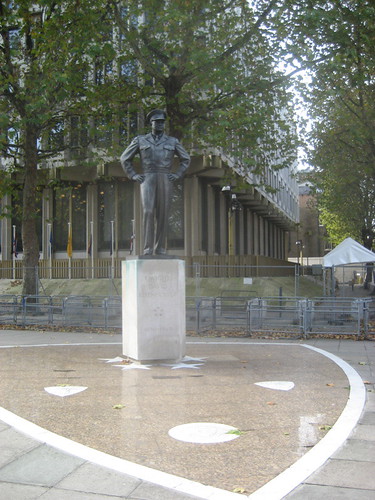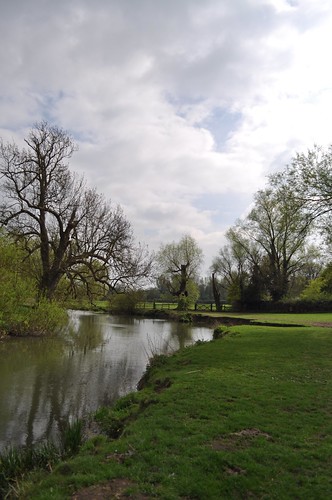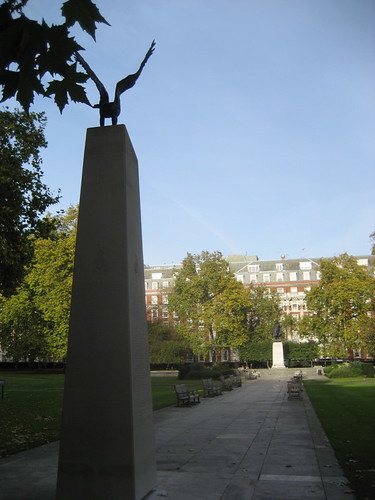One the most common reasons people give for not taking time off from work— forgoing vacation days, taking home work on the weekend, checking voice mail or email before bed— is that they have no time. Maybe their to-do list is already so long, they’ll become completely overwhelming if they step away even for twelve hours. Maybe the markets move so quickly, literally putting down their phone for a night could cause a global economic collapse. (Little-known fact: the 2008 recession happened because Jeff in Risk Analysis left his phone in his locker during a company softball game.) Maybe the competition is so ferocious an evening of unreturned calls will send clients fleeing for the exits.
I think it’s worth looking at a group of people whose decisions really did have world-wide impact, whose choices would decide the fates of millions, and whose adversaries were genuinely evil, and asking: did they ever take a break? I’m thinking specifically of the American generals who commanded U.S. forces during World War II: people like George Marshall, Dwight Eisenhower, and Douglas MacArthur. These were people who were fighting against seasoned armies who had years of first-hand experience with new methods of war, and had no illusions about the stakes.
Fortunately, we know quite a bit about these men during World War II: lots of former aides, secretaries, and staffers left behind memoirs, historians have combed archives and calendars, and between various sources we can put together a pretty good behind-the-scenes look at their daily lives.
For example, Harry Butcher, naval aide to Dwight Eisenhower, kept a diary of his time with Ike from early 1942 to the end of the war. (Butcher had been a reporter in Chicago before the war; he was the one who first described FDR’s Depression-era radio addresses as “fireside chats.” The man could turn a phrase.) He joined Eisenhower in London, and by early August writes that Ike “works from 15 to 18 hours a day,” and has become a man “whose problems frequently keep him awake at night.” A couple weeks later, he found “a ‘hideout’… called Telegraph Cottage.”
Small, unpretentious, remotely situated on a 10-acre wooded tract, with a lawn in back and rose garden…. House rents for about $32 a week…. Fireplace for heat. I decided to take it.
Telegraph Cottage was located near Richmond Park; Wimbledon was about a mile south, and Hampton Court Palace just to the southwest. Despite its being on the edge of London, Butcher said, it was “so peaceful you’d never know there is a war if it weren’t for occasional Spitfires and trainers practicing overhead. And the bomb holes on the golf course.”
Was Eisenhower unusual in maintaining some escape from the pressures of command? Hardly. On the other side of the world, Douglas MacArthur had his own ways of managing. As Hiroshi Masuda and Reiko Yamamoto write in MacArthur in Asia:
[His] chief of staff in Tokyo, testified as follows: “He would get in the office at a quarter till 11 and leave at 2:30 in the afternoon. He would get back at 5 or 5:30 and then leave whenever his work was through, which was sometimes midnight. Normally though, it was about 8:30 or 9. When I became chief of staff and he walked up to my desk, he said, ‘You know my hours. Don’t let them disturb you.'”
MacArthur didn’t escape every week or so; every afternoon he’d lie down after lunch, before going back to work. In this, he was not unlike Winston Churchill, whose naps were virtually the stuff of legend.
Army chief of staff George Marshall encouraged this kind of conservation of energy among his subordinates. As military historian Paul Munch noted, as a young officer Marshall had regularly overworked himself; it took a particularly bad collapse to convince him that he needed to take better care of himself. After that, he “exercised each morning, arrived at his office no later than 7:45 each day, and left no later than 5:30 each evening.”
He also became a fiend for delegating responsibilities to subordinates: as Munch explains, Marshall believed that “a man who worked himself to tatters on minor details had no ability to handle the more vital issues of war.” So this wasn’t just about— or primarily about— physical health. As Marshall told Butcher,
When I find an officer isn’t fresh, he doesn’t add much to my fund of knowledge and, worst of all, doesn’t contribute to the ideas and enterprising push that are so essential to winning the war. General Eisenhower had a refreshing approach to problems. He was most helpful. But he began to work 16 or 18 hours a day and before he left, I was beginning to worry about him…. You must keep him refreshed, but knowing him as we do, it will take ingenuity. It is your job in the war to make him take care of his health and keep that alert brain from overworking, particularly on things his staff can do for him.
In other words, while there’s no question (except among some fringe groups) that Marshall and other generals were devoted to winning the war, brute force alone wouldn’t win the war: intelligent planning and management were just as important, and the only way to guarantee those was to balance the hard work of command with some amount of time away.
it’s also notable that each of these men kept these spaces tightly sealed off from their working lives. Marshall’s morning rides gave him time to think, while MacArthur’s staff knew not to disturb him in the afternoon. Telegraph Cottage offers the most vivid example of this compartmentalization. Shop talk was strictly forbidden at the Cottage, and only a handful of people outside Eisenhower’s staff knew its location or ever visited. After their first visit and an American-style dinner (Eisenhower never really liked British formal dinners), Butcher noted with satisfaction, “Will have to do more of this, for it affords relaxation and change of scenery. The unending days of keeping everlastingly at it are beginning to tell, especially on Ike. He enjoyed the change.” He and Ike escaped every week or so to play golf (“Ike’s score is a military secret”), for target practice, or to simply enjoy the country. “If anything saved him from a mental crack-up in those tense days,” his driver Kay Summersby later said, “it was Telegraph Cottage and the new life it provided.”
This is important because today we tend to think that the only way to solve hard problems is through harder and more continuous work. Disruptive innovations? Forget vacations! Global competition? Never turn off your phone! In fact, the example of the generals shows that this approach is backwards: that under constant high pressure it’s more essential than ever to have some ability to escape, even briefly.
Now, it may be that you’re managing several million people, that the sakes in your business are larger than the fate of Western civilization, and that your competition is more ruthless than the Luftwaffe. If so, you can ignore all this. But if not, perhaps it’s worth asking yourself if having your own Telegraph Cottage might make sense.
[Cross-posted on LinkedIn]




